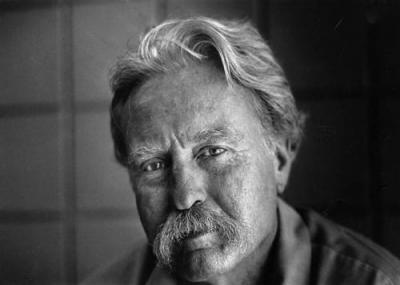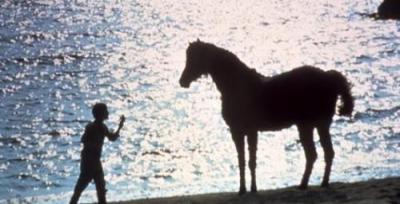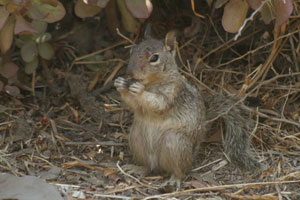Open Sesame 06/25/16

I don't believe in the prison. I don't care who it is that people want to put in there. Richard Reid. Richard Cheney. Richard Speck. I don't care. Because what happens in the prison, should happen to no human being. Or any other living creature.
Many words, they have been written against the prison. Yet the prison still stands. This is not fathomable to me. But, I know, the prison, it will not stand, always.
Dannie Martin, he wrote many wise and powerful words, against the prison. Words that were truth. Drawn from his own experience and observation. While interned in the prison.
In the summer of 1986, Martin was 46, in the sixth year of a 33-year sentence for bank robbery. He was locked away in the federal penitentiary at Lompoc. He had spent 21 years in various reform schools, jails, camps, prisons, and chain-gangs. He was the son of California Central Valley migrant workers—a "hillbilly." While still a pre-pube, he liked his liquor; later, he liked his heroin. Which is for why he robbed the banks. He was a reader—Shakespeare, Schopenhauer, Robertson Davies, Larry McMurtry, the New Yorker. And he was a writer. And, when he moved, that year, to write about the prison, the prison, it moved to snuff him out.
In that summer of 1986, Martin sent, unsolicited, a piece he'd written, from his cell, on AIDS in the prison, addressed to Peter Sussman, editor of the "Sunday Punch" section of the San Francisco Chronicle.
"Sunday Punch," it was then a lively, worthy mix of wit and wisdom, as expressed in features and photos and editorial cartoons and commentary, the sort of thing that does not exist any more, now that we no longer have the newspapers.
Of course, I am biased, since I knew people who worked on Punch, and people who regularly wrote for it, and the Punchers even printed a piece of mine, a time or two. But I think if there are any caucus people in here who remember the thing, they might agree with me. I think. Maybe. Okay. Maybe not.
Anyway. Editor Nussman. He receives this AIDS-in-prison submission from a person return-addressed as Prisoner #11319-086 at the Lompoc federal penitentiary. And the person's—writer's—voice, Sussman was pleasantly surprised to find, was "engaging, humane, refreshingly direct," with "none of the sputtering anger that animates most prison writing, though it was on a subject that he would have every right to feel angry about." Nussman ran Martin's story by Randy Shilts, the Chronicle's resident AIDS guru, who gave it the enthusiastic nod, and then Sussman wrote Martin that he would be sending the writer $100. Because he was going to print the piece in the newspaper. And then, that, Nussman did.
"none of the sputtering anger that animates most prison writing, though it was on a subject that he would have every right to feel angry about." Nussman ran Martin's story by Randy Shilts, the Chronicle's resident AIDS guru, who gave it the enthusiastic nod, and then Sussman wrote Martin that he would be sending the writer $100. Because he was going to print the piece in the newspaper. And then, that, Nussman did.
Over the next five years, Nussman shepherded fifty pieces by Martin into the Punch. Soon, the two were talking on the phone, and every day. And soon, they were, together, in the courts. Because the prison, it did not want the newspaper printing Martin's stories. The prison tried every means, to shut Martin, and the Punch, down. The Chronicle, to its credit, kept printing Martin's stories, and kept wheelbarrowing the money to the lawyers, to duel the prison all the way up to the United States Supreme Court. Where the nine, semi-divine, berobed ones, they ultimately passed. Declaring the questions at issue "moot." As Martin had by then been paroled. After five years of being slung into isolation, transferred to other prisons, having his mail fucked with, stripped even of his name—the Chronicle, it was Officially Ordered, to replace as byline "Dannie Martin," with "a federal prisoner."
Martin's fifty stories, as well as interweaving commentary from Nussman, on what was meanwhile occurring, outside of the prison, around Martin, as Martin's stories dropped, one by one, into the Chronicle, these are collected in the book Committing Journalism. Upon which Ken Kesey would bestow his highest honor: "a good book."
During the period of Martin Punch publication, I and many members of my karass, we were in some way involved in trying to keep the people out of the prison. For us, Martin's stories were golden. Because they spoke of what we knew, but what most of the people, seemed to not want to know. And they had an effect. Those stories. Not only on hearts and minds. But in releasing people unjustly convicted, changing prison policy. They focused eyes, on the prison. And the prison, it didn't like that. And so, when the prison couldn't put an end to Martin's writing, the prison put an end to Martin's life inside the prison. The prison, it paroled him.
Out on parole, Martin returned to the heroin. Though he didn't really want to. So he, sort of legally, obtained a script for buprenorphine. Which, in 1992, was in an FDA "experimental" stage (it was not approved for general use until more than 20 years later). With that, Martin was able to wave goodbye to his addiction. He settled in then as a writer. Besides the Committing Journalism book, he published two novels, and a children's play. The odd freelance piece; sometimes about the prison, sometimes not. And he was a free human being. Alive on this earth.
Martin died in Christmastime of 2013. According to the family, he died happy. "Oh, my goodness, my dad loved to read," his daughter said. "When I talked to him about a week ago, he was going on about how he'd just finished Winston Churchill's biography, and loved it."
I was one of many, many people, who wrote Martin, spurred to do so, by the grace and the gravity, and the bleeding silent-screaming pain, of his work.
In those days, we wrote letters. That is where you put a pen on a paper, and then put the paper in an envelope, and then put a stamp on the envelope, and then give the envelope to a stagecoach, or, maybe—for special delivery—to a Pony Express rider, to deliver it to the intended recipient.
Once, in the course of our correspondence, I asked Martin if I could reprint, for one of the several dying newspapers I was then serially associated with, his "Requiem For Mr. Squirrel." Sure, he replied, print whatever of mine you want. And so, I did.
That piece, it says all that needs to be said, about the prison. It says why the prison must, at once, and forever, be leveled. It says so much, that you can't say anything. When once it has had its say. It was Martin's own favorite, of  all his prison writings. It was something, he said, he needed to say. He just had to figure out. How to stay out of its way.
all his prison writings. It was something, he said, he needed to say. He just had to figure out. How to stay out of its way.
Jon Carroll, another Chronicle person, from back in the Dannie Martin day—still there, Carroll is, still a columnist at the Chronicle, a sort of last Mohican—he once wrote a piece about taking his wife and children to the movie theater to see The Black Stallion (we went to movie theaters then). And, on the drive home, Carroll and his wife, they were yammering great blistering bursts of babbling words, as San Francisco yammerers will do, about their this cineaste impression of that nearly-silent film, and their that cineaste impression of that nearly-silent film, until their young daughter, from the back seat, she suddenly said, "can't we just be quiet, and enjoy the movie?"
Yes. It's like that. Except. Here. in Mr. Squirrel. There is no "enjoy."
Last weekend I pulled Martin's Committing Journalism down off the shelf because I wanted to use something from it in one of these legal briefs I these days draft to try to keep the people out of the prison.
I then got lost in the book—it's "a good book"—and I then thought about bringing Martin from out of that book, into this space. Into the caucus.
Then, as the week went on, I noticed that Diomodes77, he went to the prison, on this site, in this piece; and then, vl baker, she went to the prison, on this site, in this piece.
And so I figured: yes. Dannie it is. The prison. It is, for whatever reason, banging around, the collective caucus mind.
And so. Here we are.
Now that Martin is dead, I figured I should ask him again. If it is okay. To reprint "Requiem For Mr. Squirrel." And so, I did. And Martin, he replied: Sure. Go to it.
And. Mr. Squirrel. He said that. Too.
Lompoc, Calif. (Oct. 26, 1986)
Convicts always walk around a track counterclockwise, as if to deny time itself, as represented by the clock. It's a losing battle—time always wins. As the years go by, the exercise walks around the track at the prison's perimeter only get more boring.
Four years ago this month, as my walking boredom threatened to become terminal, I met Mr. Squirrel on the yard here at Lompoc penitentiary. Mr. Squirrel was indeed a squirrel and not the nickname of a bushy-haired convict with an overbite.
He was only one of many squirrels that ventured in between the double prison fences and sat upon hind legs in attitudes of supplication, seemingly praying for a morsel. We did throw them food, but mostly all we had was croutons sneaked out of the mess hall.
Most of the croutons fell short of the first fence, as it is hard to throw a small piece of toasted bread more than fifteen or twenty feet. Especially against the wind; and here at Lompoc if you are facing west, which is where the squirrels were, a brisk ocean breeze will almost always be blowing back directly in your face.
The squirrels would watch with chagrin and sometimes chatter furiously as our windblown croutons fell short of the fence, only to be swooped on by the ever-present seagulls and vigilant crows that had no sympathy  for squirrels at all. Sometimes those croutons that reached the no-man's land of rolled razor wire between the fences where the squirrels waited were picked off in the air by diving gulls.
for squirrels at all. Sometimes those croutons that reached the no-man's land of rolled razor wire between the fences where the squirrels waited were picked off in the air by diving gulls.
Every day during the noon lunch break, eight or ten of us crouton carriers were beneath the corner gun tower, trying to feed the squirrels. Yet even this diversion was getting boring until the day I met Mr. Squirrel.
Nothing about his looks distinguished him from the others. He looked exactly like a half-grown ground squirrel. His pose was rather striking. While the others ran about frantically chattering at thieving gulls, he sat upright in an attitude of absolute repose.
I chunked a crouton in his direction, and the wind blew it back to a spot about six feet beyond where I stood by a sign that read "Out Of Bounds Beyond This Sign," and about twenty feet from where Mr. Squirrel sat between the fences. Three gulls hit the ground in hot pursuit of the crouton, and as I reached for another, a strange and unprecedented tableau unfolded.
Before any of the gulls could snatch the crouton, Mr. Squirrel was right in the middle of them, and they were running in all directions. In my memory it seems that a few feathers flew, but I doubt that, for while gulls are loud, gluttonous, and aggressive, they turn into craven skulking beasts the moment they are confronted by anything larger than a hummingbird.
Mr. Squirrel ate the crouton, and a few more, then left with his jaws stuffed full of the others I had brought. The next day he was waiting, and before I even reached for a crouton, he ran right up to me and sat calmly watching. Before we parted that day, he ate right out of my hand. This squirrel had more nerve than John Dillinger.
Our friendship was born on a note of pure justice. He had rescued me from terminal boredom, and I reciprocated by easing his hunger and teasing his palate with an ever-increasing variety of hoarded edibles.
He was especially fond of peanut butter. I rolled it into little balls, then laughed when he stuffed it in his jaws to save and chattered furiously as it melted in his mouth.
Now that Mr. Squirrel had broken the barriers, most of the squirrels followed his example and sat begging only a few feet from where we walked the track.
Mr. Squirrel would take food from other cons, but he never approached anyone but me. If I had peanut butter or candy-coated almonds, he would sometimes climb up my arm and eat on my shoulder. He left each day with his jaws stuffed. His pantry in the field beyond the fences must have been well stocked.
The day I grabbed him and turned him over to find out if he was a Mr. or a Ms., he clawed me good, bit a chunk out of my arm, jumped down, and chattered at me for a good five minutes. Then forgave and forgot. I never tried that again, but there was no need—he was a Mr.
We met each day at noon for almost a year, except for fifteen days I spent in isolation for a minor rule infraction. Then he was absent for a while around January.
In early spring that year, he showed up one day followed by two baby squirrels. I don't know if they were his progeny or just admirers, but he led them right up to share my groceries. They never squabbled at all and sat patiently as I fed each in turn. Mr. Squirrel was raising them  impeccably, but unfortunately they would never get to grow up.
impeccably, but unfortunately they would never get to grow up.
On a windblown day, as I walked the track to where Mr. Squirrel waited, I noticed outside the fences, at about thirty-foot intervals, a row of little boxes with holes cut in the sides. Squirrels, including Mr. Squirrel's babies, were running in and out of the ominous little boxes and chattering happily.
My heart began to sink as it dawned on me they were being poisoned. Poisoned by a slow-acting agent like arsenic that would allow them time to crawl to a hole where they would die a slow and agonizing death, thereby leaving the little boxes clear of dead bodies and free of suspicion.
I was a hurt and helpless spectator to the warden's final solution to the squirrel problem. I harbored a dim hope that Mr. Squirrel would be too smart to go for this trick. In the few days that followed I fed him much more than he could eat or carry, and I continually lectured him on the evil that lurked nearby.
The little ones weren't seen again, and after five days Mr. Squirrel was the only one left.
When Mr. Squirrel approached me and pawed listlessly at my peanut butter while looking at me out of reddened and pain-filled eyes, I knew he had been in the box. I knew I would never see him or feed him or play with him again. A most harrowing thought was that he may have wondered if I did it to him.
I walked away knowing that for years to come I would have to pass each day by the place where I fed him, and the justice of our friendship would surely be lost in the bitterness of remembrance.
I haven't seen a squirrel these past three years. Not even on a nearby hill where they used to frolic on good days.
A few gulls were found dead, but all the crows seem to have survived. The vulture population was severely thinned. Two fluffy owls and a beautiful mating pair of red-tailed hawks disappeared about the same time as the squirrels.
The boxes are long gone now, and strange as it seems, not one convict or guard ever said a word about the squirrels or their fate.
Mr. Squirrel was like me in some ways. He disdained the status quo, and gun towers, fences, and razor wire never impressed him much. If he lay in a hole surrounded by peanut butter and croutons while arsenic ate his stomach, I have laid in Isolation strip cells surrounded by vulgar graffitti while the pain of life ate my guts.
My spirit is diminished by the way he died, stunted by the brutal termination of his refulgent soul.
Some days when I walk along by the place I used to feed Mr. Squirrel, I am haunted by a verse from an Oscar Wilde poem, "The Ballad Of Reading Gaol," where he wrote:
The vilest deeds like poison weeds
Bloom well on prison air.
It is only what is good in man
That wastes and withers there.
Of course, he never said a word about squirrels. Neither did anyone in here.


Comments
Wow. So good. I have read somewhere that prisoners allowed to
garden and/or have access to animals do so much better. This was a certain example. So, so sad.
I have a few more sites for our ever-growing list over on the left side:
- http://trustvote.org/
- Democracy Now
- Redacted Tonight
- Truth Dig
- Common Dreams ( it used to be awful: lots of flame wars, but they appear to have cleaned Up.)
Thank you so much for what you do.
You may choose to look the other way, but you can never say again you did not know. ~ William Wiberforce
If you can donate, please! POP Money is available for bank-to-bank transfers. Email JtC to make a monthly donation.
I had to check what was copy/pasted last so this:
https://nationalpurebreddogday.com/akcs-newest-breed-ears/
Now we all want one. Tragedy in the making. Now fishing for the local article apropos the subject:
http://www.ithacajournal.com/story/news/public-safety/2016/06/22/woman-l...
Never ever be the chasee through three townships. I loved the detail about "failure to signal". How cop-like.
Hey! my dear friends or soon-to-be's, JtC could use the donations to keep this site functioning for those of us who can still see the life preserver or flotsam in the water.
I have my doubts
as to whether Dick Cheney is actually a living creature. For what it's worth.
"I’m a human being, first and foremost, and as such I’m for whoever and whatever benefits humanity as a whole.” —Malcolm X
the light is on the left side of your head
Beshrew my heart, but I pity the man.
Darth Cheney, he has always been, controlled by: Fear.
He grew up—a child—in Caspar, Wyoming. Staring across the endless wastes. Where there was nothing. Nothing at all. Least of all: him. Amidst all that nothingness. Young Darth. He became: afraid. So afraid. So lonely. So cold. Just . . . so lonely. Afraid.
And then, his corporeal container, it failed him. Utterly. And early.
In 1978, when Darth was but 37, a massive heart attack, it attempted to carry him away. This he, somehow, survived. Six years later, he had a second heart attack. A third came after four more years. He underwent quadruple bypass surgery at age 47. In late November of 2000, while waiting for the United States Supreme Court to complete its judicial coup, and thereby elevate Darth, and his minion George II, to the vice presidency and presidency, of the United States, respectively, Cheney was hit with a fourth heart attack. A fifth struck in 2010.
the United States Supreme Court to complete its judicial coup, and thereby elevate Darth, and his minion George II, to the vice presidency and presidency, of the United States, respectively, Cheney was hit with a fourth heart attack. A fifth struck in 2010.
In the many meantimes, Cheney underwent coronary artery stenting, urgent coronary balloon angioplasty, the implantation of a cardioverter-defibrillator. Etc., etc., and etc. He also had fitted this and that and the other, and more, pacemakers.
In the spring of 2011, amid desperate and extraordinary attempts to extend his life, he became a man with no pulse.
Basically, Darth Cheney is a roboman. Nature, it tried to carry him off. And many years ago. But technology. It keeps him, keepin' on.
Which is fine. I can't bring myself to believe in an afterlife, so I can't remain indifferent to the suffering and end of any person: because this life is all that any person has.
So I'm fine. That Darth is still alive. Long, even, may he run.
What is not so fine, is that from Darth's place of Fear—which, apparently, began as his Caspar birthcurse, and which has since been exacerbated by the never-ending assaults on his own mortality, by his own body—Darth carved out a world-view ruled utterly and absolutely by Fear.
In the World according to Darth, Bad Things, ceaselessly, are trying to Get Him.
And how could Darth, not, perceive the world this way? When his own body, is, indubitably, trying, forever, to End him?
And so, like a typical human, Darth projected the assault on his self—by his own body—onto the wider world.
And there determined that the world was alive with beings bent on his destruction. Or the destruction of people just like him.
White. Godly. American.
And so, once he was elevated to a place of real power, he was not only able, but driven, to press his Fear, upon other, and even innocent, human beings.
innocent, human beings.
Who, some of them, in the event, died.
Because Darth, in the administration of George II, was the man who, from his life and place of Fear, devised the "One Percent Doctrine." In which, if it was determined that there may be even a 1% chance that a person might visit grievous harm upon somebody in the United States—somebody, natch: white, godly, American—then that person should be subjected to, among other things, torture. Unto, even, the last extremity.
And so, from Darth's Fear, did many human beings suffer. Go into the prison. Die.
We learned, even, that so controlled, by Fear, was Darth, so governed by his "One Percent Doctrine," that he became Convinced that "the defibrillator implanted in his chest could be used by terrorists to kill him."
So sad. That Darth, he believed, he would be the victim, of a TV show. Of terrorists. Fibrillating. His sad, weak, failed, broken, heart.
How, different, be Darth Cheney, from Christina Green. A young woman who lived a life of heart open and love.
Until the day her life was extinguished. With a bullet through the heart. Fired by a mind-melted man fully capable of laying his hands on weapons all and every. Because of United States firearms policies. Secured by the likes of Darth Cheney. Because, in the World according to Darth & Co., there must be Fear. Here even within the nation's borders. Fear, always, of the Other. In case that Other, he Slips Through. In which case, the people—White, Godly, American—must have access, to all firearms, at all times. To Do, what Must Be Done.
access, to all firearms, at all times. To Do, what Must Be Done.
For Darth, his "One Percent Doctrine," it does not, so sorry, go to serve, girls like Christina Green.
In January of 2011, Christina Green was nine years old. And she was going to be a ballerina, and she was going to be the first female professional baseball player. And she was meanwhile interested in electoral politics; she was not disillusioned; she believed that great good could be accomplished, in the system.
The system in which Darth Cheney, for more than 40 years, had played such a part.
And so her friend and neighbor, Suzi Hileman, drove Christina to a Tuscon Safeway supermarket. So Christina could meet her congressmember, Gabrielle Giffords.
And there a scrambled man, he put a bullet through Giffords' brain. And another bullet, through Christina's heart.
Christina Green's father, John, he is a scout for the Los Angeles Dodgers baseball team. He'd hoped that someday he could scout his own daughter. For though Christina was a dancer, a ballerina, she was also a baseball player, and a good one.
In November of 2010, the Dodgers held a baseball-memorabilia auction to benefit PJ Carey, a Dodger scout, and his wife, both of whom had been stricken with cancer. John Green and his wife contributed items autographed by various baseball luminaries, which they accumulated and drove to the auction.
Two hearts. Beat as one. Darth's. And Christina's. With all the hearts. All around this world.
[video:https://www.youtube.com/watch?v=47ocjcFwkXI]
Well, it was back in Blind River...
...in 1962
When I last saw you alive
But we missed that shift on the long decline
Long may you run
Long may you run, long may you run
Although these changes have come
With your chrome heart shining in the sun
Long may you run
"I’m a human being, first and foremost, and as such I’m for whoever and whatever benefits humanity as a whole.” —Malcolm X
There is probably a reason that
"I’m a human being, first and foremost, and as such I’m for whoever and whatever benefits humanity as a whole.” —Malcolm X
Christina was, by the way
Classmate and best friend to the daughter of a fiddle player that I play with some times. He filmed a couple of the videos I have posted here. He was in the Safeway parking lot.
"I’m a human being, first and foremost, and as such I’m for whoever and whatever benefits humanity as a whole.” —Malcolm X
Margot Fonteyn in the leap?
I saw her dance with Rudolf Nureyev, when I was a little ballet dancer. My teacher was Yvonne Abner, who danced with the royal Ballet pre-WWII.
Hey! my dear friends or soon-to-be's, JtC could use the donations to keep this site functioning for those of us who can still see the life preserver or flotsam in the water.
I have been "gifted" (at invisible gunpoint)
to write my not-yet-dead mother's obit. My guilt service to my sister, the Caregiver. I am now starting to type, free-hand, an obit.
Eliza Jane Little Sutton, born Jan 9, 1920 in Elwood, Indiana died ---------------. She is loved by her two daughters (names redacted) and her four grandchildren (names redacted). At her request her body was cremated and there was a private family service. She lived a wonderful life and her daughters learned that from her.
Short and sweet?
Hey! my dear friends or soon-to-be's, JtC could use the donations to keep this site functioning for those of us who can still see the life preserver or flotsam in the water.
So sorry, Riverlover,
This was one of my tasks when I lost my mother. I kept it short and sweet, like yours and added this...
Do not stand at my grave and weep.
I am not there; I do not sleep.
I am a thousand winds that blow.
I am the diamond glints on snow.
I am the sunlight on ripened grain.
I am the gentle autumn rain.
When you awaken in the morning's hush
I am the swift uplifting rush
Of quiet birds in circled flight.
I am the soft star that shines at night.
Do not stand at my grave and cry;
I am not there; I did not die.
from here.
No matter what you write will be perfect.
'Well, I've wrestled with reality for thirty five years, Doctor, and I’m happy to state I finally won out over it." Elwood P. Dowd "
Extremely engaging, thank you [both]
(worth shedding my lurker status for a moment to comment and praise)

De-lurk, GreyWolf!
We have heard your voice elsewhere, and that gif is great!
Hey! my dear friends or soon-to-be's, JtC could use the donations to keep this site functioning for those of us who can still see the life preserver or flotsam in the water.
Many
Americans are completely fooling things about just how inhumane conditions have gotten in our prisons. I heard someone the other day give the me line that prisons is a place where people are coddled. I was actually able to show them very specific evidence with pictures that this was not so, and they were stunned.
I remember hearing someone from Amnesty International whose job it was to campaign for people's rights abroad. He was speaking after doing a tour of Chinese prisons. Conditions were bad he said, but actually our prisons are worse now.
He spoke from experience. He had been inside ours too.
Hecate, Thanks
I appreciated reading about Danny Martin and Mr. Squirrel. Thank you!!
thank you
He was a good man.
They both were.
poor squirrels
they're critters, just like us
betty board
[video:https://www.youtube.com/watch?v=TP8qSe3b5Kw]
Thank you for the touching 'squirrel story,' hecate. Although
on occasion I've complained about being a bit overrun by them at our ground bird and rabbit feeders, for the most part, I greatly enjoy watching them, and their sometimes comical antics. I especially love to watch the very young ones--you can almost see the gears working in their brains.
Frankly, I'm with those judges who often choose to exact on animal abusers, the same punishment that they subject helpless and innocent animals to.
(Suppose I'd stop short of having a human ingest arsenic, but, a less than deadly punishment would not necessarily be out of order, IMO.)
Thanks, again, for this OT. As usual, your writing is as excellent, as it is intense!
Mollie
"Being deeply loved by someone gives you strength, while loving someone deeply gives you courage."--Lao Tzu
Visit Us At Save Our Street Dogs (SOSD)
Everyone thinks they have the best dog, and none of them are wrong.
thank you, ul
Have missed you, around these parts.
And anything you ever again might have to want to share, about Nelle, have, here, at it. ; )
Backatcha, hecate. Thanks--I haven't forgotten. I was 'hoping'
to get a shot of her gravesite--if it's accessible, which it should be, since it's in a major public cemetary--to go along with the other photos.
Of course, it would also be nice to link to your excellent essay, at that time.
(Looks like it will be very late summer, or early Fall, before we make it to Monroe County, again.)
If I don't wait, may shoot for the date(s) of Nelle's book publications, which are July 11, 1960, and July 14, 2015. Regardless, I'll give you a heads up.
Mollie
"Being deeply loved by someone gives you strength, while loving someone deeply gives you courage."--Lao Tzu
Visit Us At Save Our Street Dogs (SOSD)
Everyone thinks they have the best dog, and none of them are wrong.
Peanutbutter balls
I'm making some for the squirrels who live free in my garden and exercise pen. Thanks hecate. I do not believe in prisons or zoo's either. I once spent 3 days in Sybil Brand a LA jail for women. It was nothing like a big time privatized prison and my stay was short. No living critters should be sadistically punished like that. I was 'in contempt of court' which is a felony so at night they separated me from the rest of the inmates, for my own safety they said.
The women in the holding pens were just in the wrong place at the wrong time that the LA cops had hauled in. My fellow felon's three political prisoners had been in this wing of the jail for 4 years charged with conspiracy to free Leonard Peltier. It was an eye opener as I'm sure they intended it to be. I met some good women none of whom should have been imprisoned. The jail house keepers were sick sadistic fucks. I got a little taste for what could happen to a human who crosses the line of the law and is no longer a person. It made me understand. I'm glad you work to keep people out of prison and try to get them released.
hi shaz
The jail is bad. The prison, usually, is worse.
One of our clients, who recurrently goes in and out of the prison, she has spent time in there with the Manson girls. She says they are perfectly fine people. Now. As I'm sure they are.
As for the guards. There has to be something deeply, deeply wrong. With a person who pursues, as a "job," or "career," keeping people in cages.